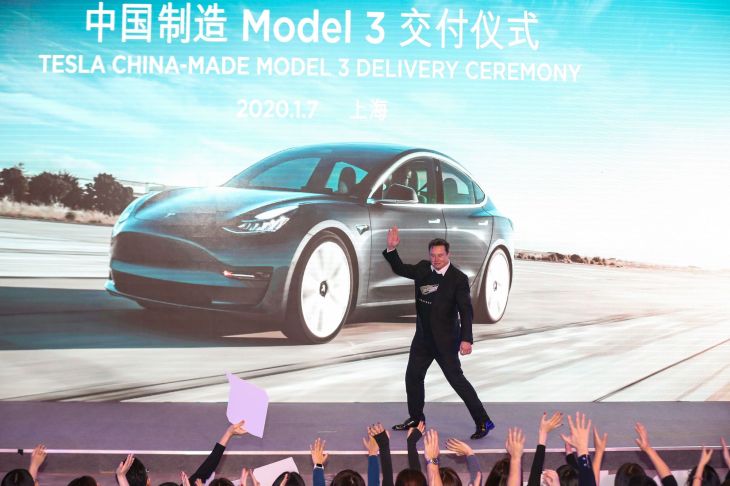[ad_1]
Dilemma for Tesla in China: Balancing data safety and belief

Enhanced ties between US tech giants and Chinese language language officers
Relations between American tech giants and the Chinese language authorities have by no means been straightforward. For instance, Apple is going through challenges because it tries to beat China’s enormous smartphone market. The corporate should discover a stability between pleasing Beijing and Western politicians, who’ve differing views on information regulation and censorship. Now, Tesla finds itself in the identical dilemma. Because it turns into a serious participant in China’s electrical automobile market, Tesla should cope with challenges posed by Beijing’s up to date anti-espionage legal guidelines and the nation’s rising give attention to nationwide safety.
Information Compliance Necessities and Safety Responses
Worldwide automakers have been working in China for a few years. Nonetheless, the rise of Web-connected autos has launched new information compliance necessities that conventional automobile producers wouldn’t have to face. Tesla has already confronted information safety backlash within the nation. In a latest incident, an airport within the southern metropolis banned Tesla vehicles from parking because of privateness considerations, although drop-off and pick-up are nonetheless allowed. The ban is reportedly a response to Tesla’s Sentry Mode, a characteristic that makes use of the automobile’s exterior cameras to detect suspicious exercise. Whereas different native electrical automobile makers supply related options, Tesla’s overseas id fuels distrust.
Tesla’s response and rationalization on data storage
Tesla responded to the media consideration by saying that information generated from Sentry Mode is barely saved offline on the automobile’s USB machine and that neither the proprietor nor Tesla can view the automobile’s atmosphere remotely on-line. The corporate stresses that the Sentry mode must be activated manually and the digital camera solely offers data when a risk is detected. Prospects are suggested to guage and regulate to native legal guidelines and rules concerning use of the digital camera. Tesla additionally highlighted its compliance with China’s automobile information safety measures and the institution of a knowledge localization heart to guard drivers’ privateness and defend nationwide safety.
Localization of information and exclusion from public areas
This isn’t the primary time Tesla vehicles have confronted boycotts in public locations in China. In Might 2021, some authorities compounds barred Tesla vehicles from coming into. Nonetheless, Tesla has reiterated that it’s dedicated to complying with China’s rules and has taken steps to localize its information in accordance with the nation’s tips. Tesla acknowledges that some data, comparable to visible particulars about airport environments, fall into classes that require storage inside China.
Associated Challenges Confronted by Apple
Apple, like Tesla, maintains a big presence in China and likewise faces information privateness points within the nation. The corporate’s problem is compounded by its app retailer, which requires tight monitoring to make sure compliance with China’s web rules. Each Tesla and Apple need to cope with the complexities of knowledge regulation and localization when working in China.
Challenges forward for Tesla’s full self-driving in China
Tesla is predicted to face extra challenges concerning information segregation when it introduces full self-driving (FSD) for Chinese language customers. The speculation means that the FSD will probably be accessible in China in 2023. Nonetheless, this presents an analogous dilemma that TikTok confronted within the US. Tesla should discover a strategy to successfully execute AI coaching utilizing overseas client information with out violating restrictions on information exports. A number of options have been recommended, together with conducting closing coaching in China utilizing Chinese language language data. The technical feasibility of such choices stays to be seen. Moreover, it would take Tesla at the very least 12 months to localize the FSD for China’s complicated street circumstances.
conclusion
Tesla’s fast growth into China’s electrical car market has put the corporate in a tough place. Balancing information safety necessities and gaining belief from Chinese language shoppers and authorities is essential to its success. The corporate has confronted information safety considerations and boycotts from some areas, though it insists on compliance with China’s rules and a dedication to defending drivers’ privateness. As Tesla prepares to launch full self-driving in China, it would face new hurdles associated to information segregation and localization. Tackling these challenges effectively will probably be key to Tesla’s long-term progress on the earth’s largest electrical automobile market.
inquiries to ask
1. Why did an airport in China ban the parking of Tesla vehicles?
The airport banned Tesla vehicles from parking because of privateness considerations. The ban was reportedly a response to Tesla’s Sentry Mode characteristic, which makes use of exterior cameras to detect suspicious exercise. Tesla’s overseas id has led to belief points, though different native electrical automobile makers have related options.
2. How does Tesla deal with concepts about data storage?
Tesla clarified that data generated from Sentry Mode is saved offline solely on the automotive’s USB machine and can’t be considered remotely by the proprietor or Tesla. The corporate additionally emphasised that prospects ought to adjust to native legal guidelines and rules concerning the usage of the digital camera.
3. How does Tesla regulate to China’s data safety measures?
Tesla has arrange a data localization heart according to China’s automobile data safety measures. The corporate shops essential data inside China to guard drivers’ privateness and defend nationwide safety. Visible particulars about some locations, such because the atmosphere of an airport, fall into the class of knowledge that have to be saved inside China.
4. What challenges does Tesla face with full self-driving in China?
When Tesla debuts full self-driving in China, it would need to sort out data isolation challenges. The corporate faces a ban on exporting information, which poses a dilemma relating to coaching AI utilizing overseas client information. Discovering an answer that complies with rules whereas successfully coaching AI algorithms will probably be key to Tesla’s success in China.
Please see this hyperlink for extra data
[ad_2]
To entry extra data, kindly consult with the next link
